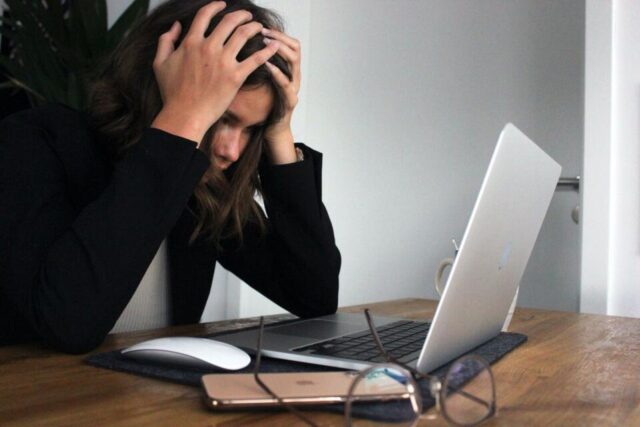Research has shown how important good sleep is for our overall well-being, especially when it comes to preventing burnout.
THE lack of sleep is a major contributor to burnout, warns Dr Alison Bentley, a sleep expert and medical doctor at the Restonic Ezintsha Sleep Clinic in Johannesburg.
She added that work stress is often blamed for poor sleep, but in some cases, disorders like insomnia or obstructive sleep apnea could actually be the cause. Dr Bentley also cautioned that daytime fatigue resulting from these disorders can be misinterpreted as early burnout.
About 10% of adults have chronic insomnia and 40% have sleep apnea. She explained that the first step in treating these disorders are to identify.
She added that not being able to doze off without any clear reason is a big cause of ongoing sleep problems.
She suggested sleeping a sleep diary which can help track sleep patterns and identify any factors that might be affecting your sleep.
This could include factors such as what time you go to bed, when you wake up, and any potential triggers that might be disrupting your sleep.
“Feeling very anxious and thinking a lot before bed can make the problem worse,” Bentley warned. She added that thinking too much about work when you’re not working can lead to burnout and make insomnia more likely.
And during burnout, the quality of sleep for individuals with symptoms of the condition is worse compared to those it.
“It is crucial for sleep to improve during the recovery phase, as poor sleep is linked to slower recovery and an increased risk of not returning to work for up to two years,” said Dr Bentley.
She advised taking time to wind down after work, allowing at least one hour to transition into a sleep-friendly state.
“Close your laptop and let work thoughts settle before engaging in relaxing activities like reading or watching a short TV program,” she suggested. The sleep expert also recommended preparing for bed 30 minutes before bedtime by things like putting on pyjamas and brushing your teeth.
“Once in bed, find a deliberate distraction to keep your mind off work and allow sleepiness to develop,” she said.
Dr Bentley also added that burnout is a common occurrence that many people have grown too familiar with.
“The toll it takes on our well-being is evident, from the constant demands of work to the stresses of modern life.”
“However, amid all of this activity, one important factor that is sometimes disregarded is the significant influence that sleep has on our capacity to fend off burnout.”
Research has also shown how important good sleep is for our overall well-being, especially when it comes to preventing burnout. Burnout, caused by unmanaged stress at work, can leave us feeling exhausted and affect our productivity and sense of purpose.
“We all know that sleep is crucial for how well we think, how we feel, and our physical health,” she said. “When we don’t get enough rest, we become more at risk of burnout because our body and mind miss out on the recovery and renewal that sleep provides.”
She added that it is a never-ending cycle where staying awake for too long creates more stress, making it even harder to get good sleep. “This lack of rest just makes the stress worse, setting the stage for burnout.”
On the other hand, getting enough good sleep can help protect us from burnout’s harmful effects. “It gives our bodies the essential rest they need to recover, helps our minds reset, and replenishes our emotional strength,” she explained.
“When we’re well-rested, it’s easier for us to handle life’s challenges with energy and strength.”
Strategies for restoring balance
The sleep expert explained that by understanding the pivotal role of sleep in mitigating burnout, it becomes imperative to cultivate healthy sleep habits as a foundational pillar of self-care.
“This includes prioritising a consistent sleep schedule, creating a relaxing pre-sleep routine, and fostering an environment conducive to restful slumber.”
She added that embracing mindfulness practices, such as meditation and deep breathing exercises, can also be invaluable tools in combating stress and facilitating restful sleep.
There are also alternative ways to prevent not getting enough sleep and to avoid burnout. Here are a few strategies:
Time management
Prioritise tasks, set realistic goals, and break tasks into manageable segments, Bentley suggested. “This can help prevent the build-up of overwhelming workloads and reduce stress.”
Take regular breaks
Incorporating short, frequent breaks into your workday can help refresh your mind and prevent mental exhaustion, the sleep expert said. She added that this could include taking a walk, practising deep breathing, or engaging in a quick mindfulness exercise.
Have boundaries
Set clear boundaries between work and personal time. “Avoid bringing work-related stress into your personal life and disconnect from work emails and calls during designated off-hours,” Dr Bentley suggested.
Seek support
Talking to colleagues, friends, or a professional about work challenges and stress can provide valuable support and perspective, the sleep expert said. She added that building a strong support network can help prevent burnout.








